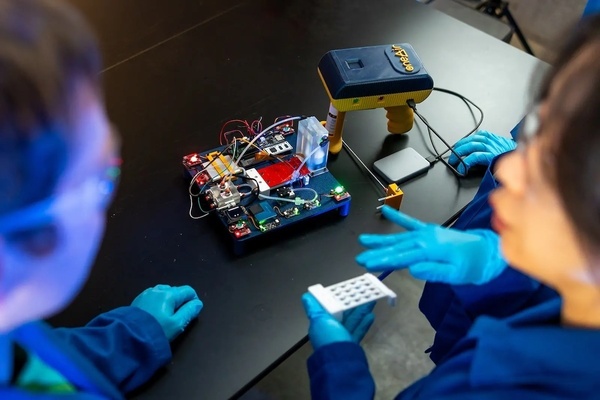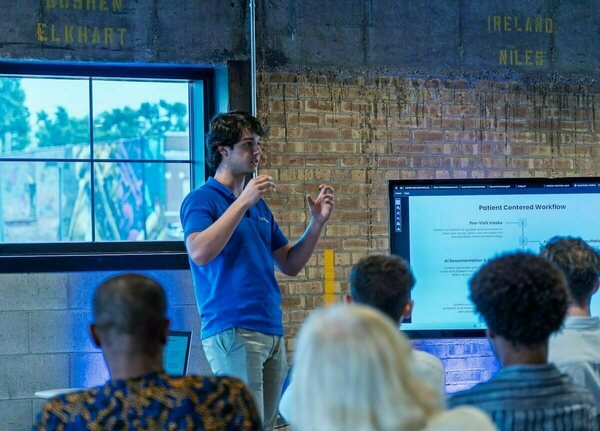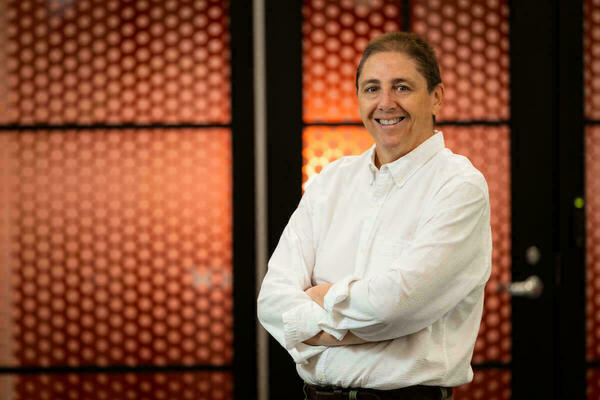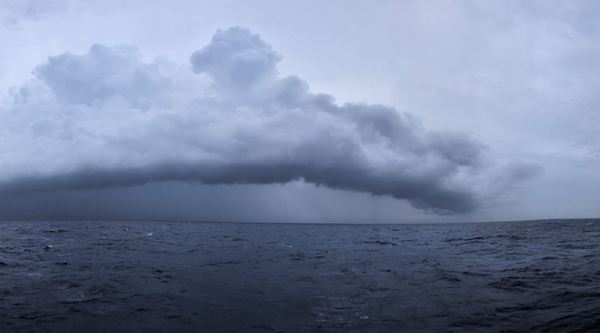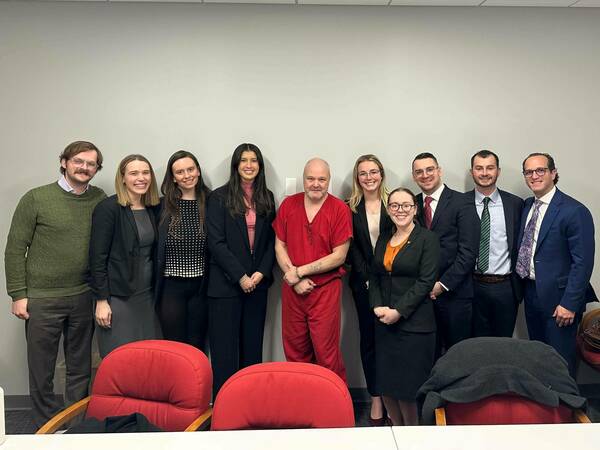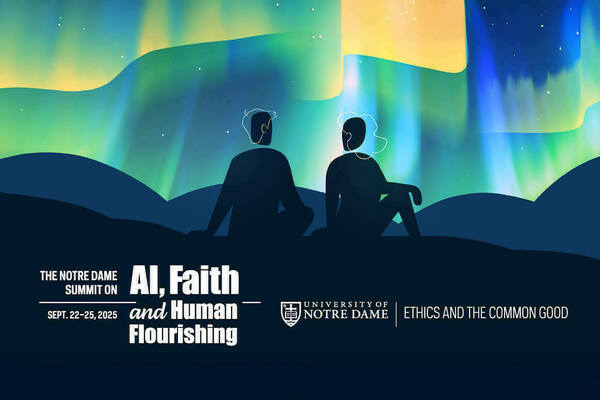Notre Dame helps bring the first high-resolution transmission electron microscope to Armenia

The University of Notre Dame’s Integrated Imaging Facility (NDIIF) has helped Armenia reach a historic milestone by supporting the acquisition and implementation of the country’s first-ever high-resolution transmission electron microscope (TEM).
This achievement marks a significant step forward for scientific research in Armenia. The new Talos F200i high-resolution TEM, now installed at the Institute for Physical Research of the National Academy of Sciences of Armenia (IPR NAS), with funding from the Higher Education and Science Committee of Armenia, enables groundbreaking advances in materials science, nanotechnology, and biological research within the country.
NDIIF’s 15 years of expertise in electron microscopy proved invaluable throughout the project. The facility provided critical support by establishing connections with major vendors in the electron microscopy market and assisting in the selection of an optimal TEM to address the specific scientific challenges faced by Armenian researchers. The NDIIF team then aided in price and warranty negotiations and coordinated the delivery and installation of the TEM in Armenia.
The effort was led by Alexander Mukasyan, a research professor in the Department of Chemical and Biomolecular Engineering and the director of the Advanced Electron Microscopy Core at NDIIF. Mukasyan said, “We were honored to support the effort to bring Armenia its first high-resolution TEM. We’ve also been delighted to help in the next step—developing local expertise to fully leverage this technology.”

Dr. Astghik Kuzanyan, a researcher at IPR NAS’s Materials Science Laboratory, underwent comprehensive training at the NDIIF. This hands-on experience, made possible by NDIIF’s ownership of an identical model of the TEM, equips Kuzanyan with the skills to independently operate the microscope and train other scientists in Armenia.
Dr. Kuzanyan’s was the first in a planned series of visits and collaborations. Tatyana Orlova, the NDIIF’s electron microscopy specialist, will help guide the acquisition and installation of Armenia’s first Dual Beam NANOlab, an instrument that will complement the TEM. Additionally, Dr. Maksym Zhukovskyi, program director for the NDIIF’s TEM program, is scheduled to travel to Armenia to address operational questions and provide further technical assistance.
Kuzanyan expressed her appreciation for NDIIF’s support. “Thank you, Notre Dame and NDIIF, for this opportunity to train and collaborate,” she said. “Your expertise will help me operate our new TEM and contribute to advancing science in Armenia. I look forward to continuing this partnership.”
NDIIF’s engagement with Armenian scientists speaks to the University’s commitment to international engagement. Notre Dame’s expanding set of global research collaborations currently includes over 170 active externally funded research projects in over 60 countries around the world.
To learn more about the NDIIF’s capabilities and ongoing research projects, please visit the Integrated Imaging Facility's website.
Contact:
Brett Beasley / Research Content Strategy Program Director
Notre Dame Research / University of Notre Dame
bbeasle1@nd.edu / +1 574-631-8183
research.nd.edu / @UNDResearch
About Notre Dame Research:
The University of Notre Dame is a private research and teaching university inspired by its Catholic mission. Located in South Bend, Indiana, its researchers are advancing human understanding through research, scholarship, education, and creative endeavor in order to be a repository for knowledge and a powerful means for doing good in the world. For more information, please see research.nd.edu or @UNDResearch.
Latest Research
- Fighting for Better Virus DetectionAn electronic nose developed by Notre Dame researchers is helping sniff out bird flu biomarkers for faster detection and fewer sick birds. Read the story
- Notre Dame’s seventh edition of Race to Revenue culminates in Demo Day, a celebration of student and alumni entrepreneurship…
- Managing director brings interdisciplinary background to Bioengineering & Life Sciences InitiativeThis story is part of a series of features highlighting the managing directors of the University's strategic initiatives. The managing directors are key (senior) staff members who work directly with the…
- Monsoon mechanics: civil engineers look for answers in the Bay of BengalOff the southwestern coast of India, a pool of unusually warm water forms, reaching 100 feet below the surface. Soon after, the air above begins to churn, triggering the summer monsoon season with its life-giving yet sometimes catastrophic rains. To better understand the link between the formation of the warm pool and the monsoon’s onset, five members of the University of Notre Dame’s Environmental Fluid Mechanics Laboratory set sail into the Bay of Bengal aboard the Thomas G. Thompson, a 274-foot vessel for oceanographic research.
- Exoneration Justice Clinic Victory: Jason Hubbell’s 1999 Murder Conviction Is VacatedThis past Friday, September 12, Bartholomew County Circuit Court Judge Kelly S. Benjamin entered an order vacating Exoneration Justice Clinic (EJC) client Jason Hubbell’s 1999 convictions for murder and criminal confinement based on the State of Indiana’s withholding of material exculpatory evidence implicating another man in the murder.
- Notre Dame to host summit on AI, faith and human flourishing, introducing new DELTA frameworkThe Institute for Ethics and the Common Good and the Notre Dame Ethics Initiative will host the Notre Dame Summit on AI, Faith and Human Flourishing on the University’s campus from Monday, Sept. 22 through Thursday, Sept. 25. This event will draw together a dynamic, ecumenical group of educators, faith leaders, technologists, journalists, policymakers and young people who believe in the enduring relevance of Christian ethical thought in a world of powerful AI.








